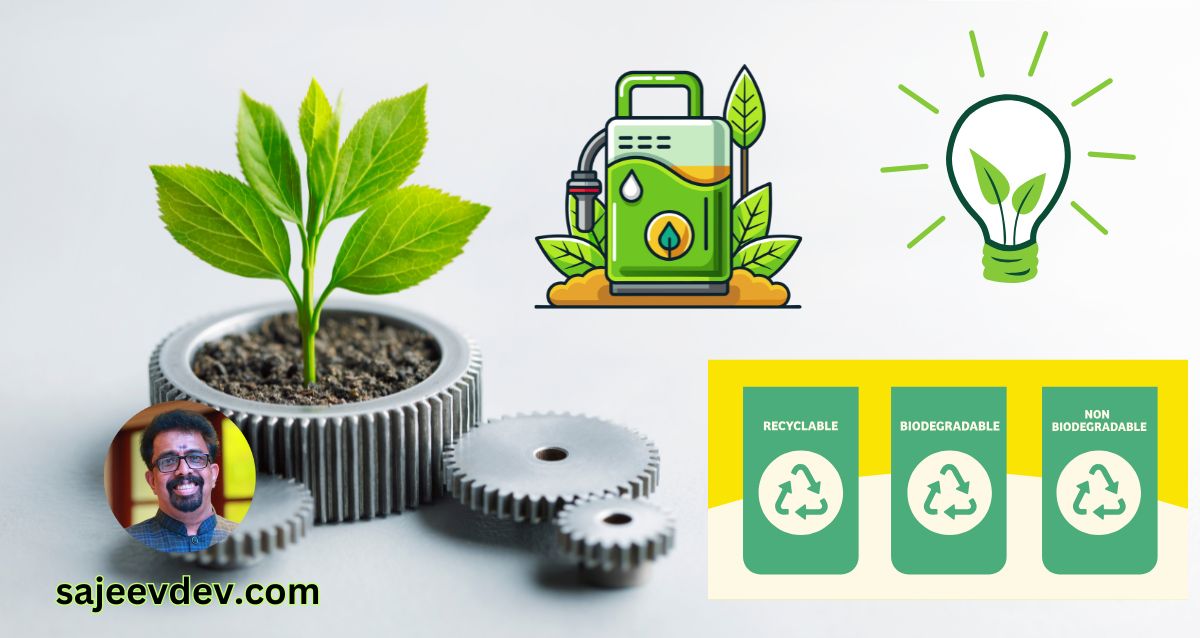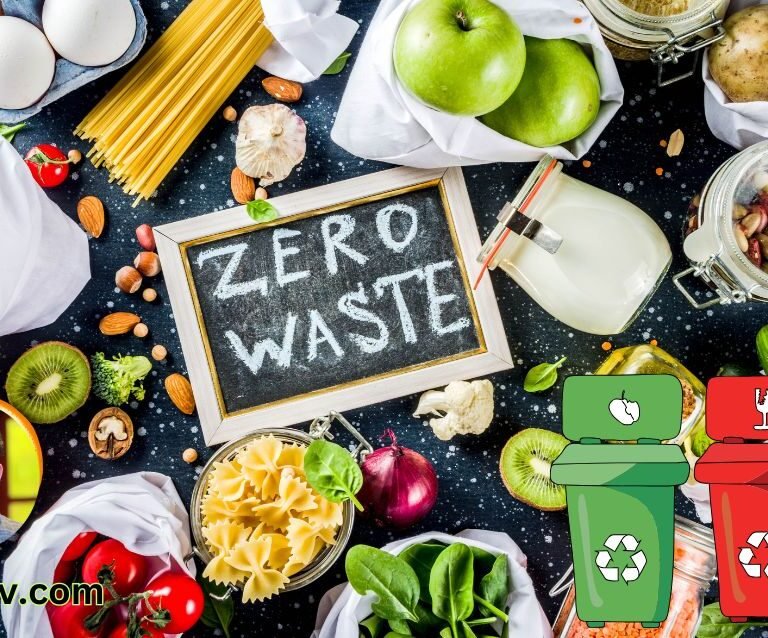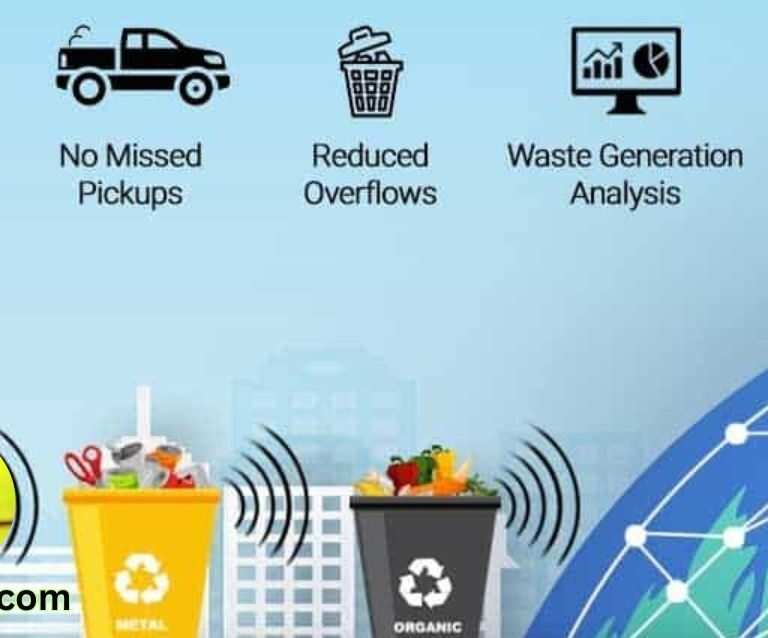Bio-Waste Recycling
Bio-waste, also known as organic waste, refers to biodegradable materials derived from living organisms, such as food scraps, garden waste, and agricultural residues. This type of waste plays a crucial role in contemporary waste management discussions as it constitutes a significant portion of total waste generated globally. The increasing volume of bio-waste presents considerable environmental challenges, contributing to landfill overflow, greenhouse gas emissions, and pollution. As urbanization and population growth continue to accelerate, the effective management of bio-waste has become an urgent priority for municipalities and environmental organizations alike.
The environmental impact of bio-waste is profound. When decomposed in landfills, it generates methane, a greenhouse gas far more potent than carbon dioxide, exacerbating climate change. Moreover, improper disposal of bio-waste can lead to soil and groundwater contamination. Consequently, the necessity for innovative recycling technologies is underscored by these environmental concerns. Recycling bio-waste not only helps mitigate these adverse effects but also contributes to a circular economy, where waste is transformed into valuable resources.
Innovative recycling technologies have emerged as a viable solution for addressing the challenges posed by bio-waste. These technologies encompass a range of processes that convert organic waste into high-value products, such as compost, biogas, and bio-based materials. By implementing and optimizing these methodologies, communities can reduce the volume of bio-waste sent to landfills and harness its potential in creating sustainable energy sources and fertilizers.
In light of these factors, ongoing research and development in bio-waste recycling technologies are essential. It is imperative that effective solutions are established to simultaneously tackle waste management concerns and promote environmental sustainability. Thus, understanding the significance of bio-waste recycling sets the stage for exploring the innovative approaches that are shaping this field.
Understanding Enzyme-Based Solutions
Enzyme-based solutions have gained significant attention in the field of bio-waste management due to their ability to efficiently break down organic matter. Enzymes, which are natural catalysts, facilitate biochemical reactions by lowering the activation energy required for the breakdown of complex organic compounds. This process allows for a more rapid decomposition of bio-waste compared to traditional composting methods, which can be time-consuming and labor-intensive.
One of the notable advantages of enzymatic processes is their ability to accelerate the degradation of organic materials, which not only shortens the composting time but also enhances the quality of the end product. Enzymes such as cellulases and ligninases target specific components of plant material, ensuring thorough breakdown. As a result, the nutrient-rich compost produced is more suitable for agricultural applications. Furthermore, the use of enzyme-based approaches can lead to a significant reduction in greenhouse gas emissions, including methane, which are often released during the decomposition of organic waste in anaerobic conditions.
Numerous practical applications of enzyme-based solutions can be observed in various sectors. Municipal waste management programs have begun incorporating enzymatic formulations to treat organic waste, effectively transforming it into compost-like outputs. Additionally, industries such as food processing and agriculture are leveraging enzyme technology to enhance waste treatment processes, thus promoting sustainability and resource recovery. One compelling case study involves the use of proprietary enzyme blends in composting facilities, where they have successfully reduced processing times by up to 50% while minimizing unpleasant odors associated with traditional composting.
In summary, enzyme-based solutions represent a cutting-edge approach in bio-waste management, offering efficient decomposition, improved compost quality, and reduced environmental impact. As these technologies continue to evolve, their integration into standard waste management practices holds promise for future sustainable waste recycling. By harnessing the power of enzymes, industries can contribute to a greener planet while optimizing their resource management systems.
Speeding Up Composting: Enzymes in Action
The process of composting is fundamentally governed by various microbial activities, and enzymes play a critical role in expediting these biological processes. Enzymes are specialized proteins that act as catalysts, facilitating the breakdown of complex organic materials including cellulose, lignin, and other components present in bio-waste. By augmenting the activity of microorganisms involved in the composting process, enzymes can significantly enhance the degradation rate of bio-waste, transforming it into valuable compost much more efficiently.
Different types of enzymes target specific substrates within the compost pile. For instance, cellulases are particularly effective in breaking down cellulose, a major component of plant materials, while ligninases focus on lignin, thus enabling the decomposition of tougher, woody materials. The strategic application of these enzymes can lead to a more uniform composting process, resulting in compost that is not only rich in essential nutrients but also superior in quality. This increase in nutrient content is beneficial for soil health, promoting better plant growth.
Case studies demonstrate the effectiveness of enzyme application in composting practices. For example, a study conducted by a team at a prominent agricultural university illustrated that the addition of enzyme preparations led to a 50% reduction in composting time for yard waste, compared to standard practices that did not incorporate these biocatalysts. Similarly, another study showed that using enzyme-enhanced compost not only facilitated faster decomposition rates but also produced compost with a higher organic matter content and improved nutrient availability for crops.
The integration of enzymes into composting represents a promising innovation in waste management strategies. By optimizing the composting process, enzymes contribute to sustainable practices that align with global efforts to reduce bio-waste and promote environmentally friendly recycling technologies.
Bio-Waste to Protein: A Game-Changer in Food Production
The conversion of bio-waste into protein sources presents a significant opportunity within the realm of food production, promising to simultaneously address environmental sustainability and nutritional needs. As the global population continues to rise, conventional sources of protein for both humans and livestock are increasingly challenged. Innovative recycling technologies are now emerging that transform organic waste materials into valuable protein-rich alternatives. These methods provide sustainable solutions by repurposing bio-waste that would otherwise contribute to landfill masses and greenhouse gas emissions.
Several technologies are currently utilized to convert bio-waste into protein. One notable method involves microbial fermentation, wherein specific microorganisms are employed to consume organic materials and produce protein as a byproduct. This approach not only reduces waste but also generates a high-quality protein source rich in amino acids, essential for livestock growth. Another technique is insect farming, where substances like food scraps are processed to cultivate protein-rich insects such as black soldier flies. These insects serve as a nutritious feed for poultry, aquaculture, and even pet food, contributing to a more sustainable protein supply chain.
The advantages of integrating recycled protein sources over traditional livestock feed are manifold. Notably, these alternative protein sources can lead to significant reductions in resource usage, including water and arable land, while also minimizing reliance on conventional soy or fishmeal, which can have detrimental environmental impacts. Furthermore, using bio-waste for protein production can enhance nutrient cycles and align with circular economy principles by diverting waste from landfills and utilizing it efficiently.
In light of these potential benefits, the market for bio-waste-derived proteins is anticipated to grow substantially in the coming years. Awareness of the health and environmental benefits associated with these protein sources is increasing among consumers and producers alike, suggesting a promising future for this innovative recycling sector. As technological advancements continue to evolve, bio-waste-to-protein production could play a central role in shaping sustainable food systems, addressing both food security and environmental challenges.
Waste-to-Protein: Technologies and Applications
The transformation of bio-waste into protein products has gained significant attention as a sustainable solution to address food security and environmental challenges. Various innovative technologies have emerged to facilitate this conversion, each with unique processes and applications. One prominent method is fermentation, wherein microorganisms such as bacteria and fungi are utilized to break down organic matter. This bioprocess not only produces edible protein but also generates additional valuable byproducts such as vitamins and fatty acids, making it an efficient approach to bio-waste management.
Another noteworthy technology involves the use of insects, such as black soldier flies, which are capable of converting organic waste into high-quality protein-rich biomass. Insect farming can significantly reduce the volume of bio-waste while generating protein that can serve as animal feed or even human food. The advantages of this method lie in its low resource input, rapid reproduction cycle, and ability to thrive on a diverse range of organic materials.
Innovative biorefineries are also being developed, which integrate multiple bioconversion processes to optimize resource utilization and minimize waste. These facilities can employ a combination of fermentation, insect cultivation, and other conversion techniques to maximize protein yield from various bio-waste sources. The economic implications of these technologies are substantial, as they present an opportunity for industries to generate additional revenue streams while reducing reliance on traditional protein sources like soy and animal farming.
Furthermore, the adoption of waste-to-protein technologies can contribute to solving pressing food security issues. With a growing global population and limited arable land, the ability to efficiently convert bio-waste into protein is crucial for sustainable food production. As these technologies continue to advance and scale, they promise to play a significant role in creating a circular economy, aligning environmental sustainability with economic viability. In conclusion, the innovative application of waste-to-protein technologies offers a promising avenue for addressing both food production and environmental challenges in an increasingly resource-constrained world.
Waste-to-Biofuel: Harnessing Energy from Bio-Waste
In recent years, the conversion of bio-waste into biofuels has emerged as a promising solution for sustainable energy production. Biofuels, such as ethanol and biodiesel, offer a renewable alternative to traditional fossil fuels, thereby contributing to energy security and reducing greenhouse gas emissions. The key processes involved in transforming bio-waste into biofuels can be categorized into biochemical and thermochemical methods.
Biochemical conversion primarily involves anaerobic digestion, a process in which microorganisms break down organic material in the absence of oxygen. This method effectively generates biogas, a mixture of methane and carbon dioxide, which can be utilized as a fuel. The residual digestate can also be used as a nutrient-rich fertilizer, thus adding value to the bio-waste. Ethanol production, another form of biochemical conversion, employs fermentation, where sugars extracted from organic materials are converted into alcohol by yeast. This process not only minimizes waste but also yields a high-energy liquid that can be incorporated into gasoline, enhancing fuel performance.
On the other hand, thermochemical conversion methods, such as transesterification, facilitate the production of biodiesel from lipid-rich bio-waste. In this chemical reaction, triglycerides present in oils and fats react with an alcohol, typically methanol, resulting in fatty acid methyl esters—commonly known as biodiesel. This renewable fuel exhibits similar properties to traditional diesel, allowing for seamless integration into existing fuel infrastructure.
The advantages of biofuels derived from bio-waste are manifold. They can significantly lower carbon emissions compared to fossil fuels, reduce dependency on non-renewable resources, and promote a circular economy by utilizing waste materials. By leveraging innovative recycling technologies, the transformation of bio-waste into biofuels presents a viable pathway towards achieving a more sustainable energy future.
Environmental Impact of Bio-Waste Recycling Technologies
The environmental benefits of bio-waste recycling technologies are multifaceted and significant, contributing to a more sustainable future. One key metric in assessing these benefits is the reduction of landfill use. Traditional waste management frequently involves landfilling, where organic matter decomposes anaerobically, producing methane, a potent greenhouse gas. Innovative bio-waste recycling technologies, such as anaerobic digestion and advanced composting methods, convert organic waste into valuable resources while drastically minimizing the volume of material destined for landfills. By diverting bio-waste from landfills, these technologies not only address waste management challenges but also contribute to deeper systemic changes in how society approaches waste.
Another crucial aspect of environmental impact revolves around greenhouse gas emissions. By employing bio-waste recycling technologies, such as bioenergy generation systems, we reduce greenhouse gas emissions significantly. For instance, anaerobic digestion not only mitigates methane emissions by capturing them for energy use, but it also prevents the release of carbon dioxide that would occur if the organic matter were left to decompose in landfills. As a result, municipalities and businesses increasingly adopt these practices worldwide, which aligns with broader climate goals by enabling a lower carbon footprint.
Improved soil health is yet another significant benefit derived from innovative recycling technologies. Composting organic waste enriches soils with nutrients, improves moisture retention, and fosters beneficial microbial activity. High-quality compost produced through modern recycling methods contributes to enhanced agricultural productivity while reducing the need for chemical fertilizers. Collectively, these practices offer long-term sustainability benefits globally, thus encouraging an ecosystem-based approach to resource management. In conclusion, the environmental impact of bio-waste recycling technologies extends beyond mere waste reduction; it fosters a more sustainable relationship between society and its natural resources.
Challenges and Considerations in Bio-Waste Recycling
The recycling of bio-waste presents a myriad of challenges that stakeholders must navigate to realize its full potential. A primary concern is economic viability. The initial costs associated with bio-waste recycling technologies can be high, particularly for small to medium-sized enterprises. This economic barrier often deters businesses and municipalities from adopting recycling processes, as the return on investment may not be immediately apparent. However, long-term savings in waste management and resource recovery can justify these upfront costs.
Another significant factor is technological readiness. Although advancements in bio-waste recycling technologies are promising, many technologies are still in various stages of development and commercialization. There may be a lack of efficiency in current processes, making them less attractive compared to traditional waste disposal methods. Thus, continuous research and development are crucial to improve these technologies and make them more accessible and effective.
Regulatory hurdles also present challenges in the implementation of bio-waste recycling systems. Existing legislation may not only limit the adoption of innovative technologies but can also create uncertainty for investors. A clear regulatory framework that supports bio-waste recycling approaches is essential for encouraging participation and compliance among businesses.
Public perception plays a crucial role as well. Many individuals and communities may distrust new technologies or be uninformed about the benefits of bio-waste recycling. Educational campaigns that raise awareness of the environmental and economic advantages can help shift public attitudes and foster support for such initiatives.
To overcome these challenges, it is essential to explore collaborative strategies among stakeholders, including government bodies, private firms, and community organizations. By fostering collaboration and ensuring knowledge-sharing, the bio-waste recycling sector can navigate its challenges more effectively and progress toward a sustainable future.
Future Trends in Bio-Waste Recycling Technologies
The field of bio-waste recycling technologies is experiencing a significant transformation as it adapts to the pressing demands of sustainable development. One of the most promising trends is the emergence of innovative enzyme applications that enhance the breakdown of organic materials. These enzymes, often derived from microorganisms, can accelerate the decomposition process, allowing for more efficient conversion of bio-waste into valuable products such as biogas and bio-based chemicals. The development of tailored enzymes that target specific types of waste could drastically reduce processing times and improve the yield of recyclable materials.
Another notable trend is the scalability of waste-to-protein and waste-to-biofuel technologies. As global food security and energy needs continue to grow, the potential for converting organic waste into high-quality protein sources and sustainable fuels is becoming increasingly important. Advancements in fermentation technology and microbial protein production are paving the way for the development of large-scale systems that can integrate bio-waste into the food and energy supply chains effectively. This shift not only reduces reliance on conventional feedstocks but also minimizes environmental impacts associated with waste disposal.
Additionally, the role of biotechnology in enhancing bio-waste recycling processes cannot be overstated. Innovative biotechnological approaches, including genetic engineering and synthetic biology, are being explored to optimize microorganisms for better waste degradation and resource recovery. By harnessing the power of these technologies, we can enhance the efficiency of bio-waste conversion processes and create more resilient systems capable of operating under diverse environmental conditions.
As we look to the future, it is imperative that continued research and investment in these innovative recycling technologies are prioritized. Only through a concerted effort from researchers, policymakers, and industry stakeholders can we realize a sustainable future that leverages bio-waste as a valuable resource rather than a mere problem to be managed.









